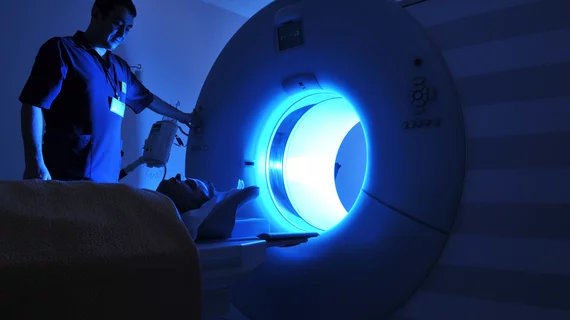‘Quantum leap’: Researchers develop ‘intelligent’ new material for quicker, cheaper MRIs
Scientists from Boston University have developed a revolutionary new “metamaterial” that they said will speed up MRI times while also making the examinations much more affordable.
They plan to do so with new components made of simple copper wiring and plastic, which cost just $10 to construct. When placed beside the body part being scanned, the metamaterial amplifies the energy emitted by a patient’s body, thereby increasing the signal-to-noise ratio, and bolstering the image’s quality.
If such technology is made available commercially, it could revolutionize magnetic resonance imaging, noted Stephan Anderson, a Boston Medical Center radiologist and BU School of Medicine professor of radiology. His work with four other scientists was highlighted recently in Advanced Materials.
"Shortening MRI examinations is paramount to maximizing the capacity. Not to mention revenue, as well as the overall patient experience of this powerful imaging technology," Anderson said in a statement released Tuesday, Nov. 5.
An MRI operates by generating a magnetic field and then sending waves back into the patient, whose tissues emit low-energy waves received by the machine. The higher the signal-to-noise ratio produced in this process, the better the image. However, increasing that magnetic field also ups the cost and risk to the patient.
Anderson and colleagues’ intelligent new metamaterial is able to selectively increase those emissions from a patient’s body, and then turn itself off during the burst of energy from the MRI machine, according to their study. The materials are able to intensify signal-to-noise ratios by 10, which creates crisper images at a lower cost and reduced scan time.
This off time also decreases patients’ exposure to radiation, which BU scientist said makes it safer and should allow for a quicker path to widespread adoption.
"We can now build smart materials that can interact with radio waves intelligently, enhancing the wanted signal while letting the unwanted signal go," noted lead author Xin Zhang, a professor at both the BU College of Engineering and the school’s Photonics Center.

